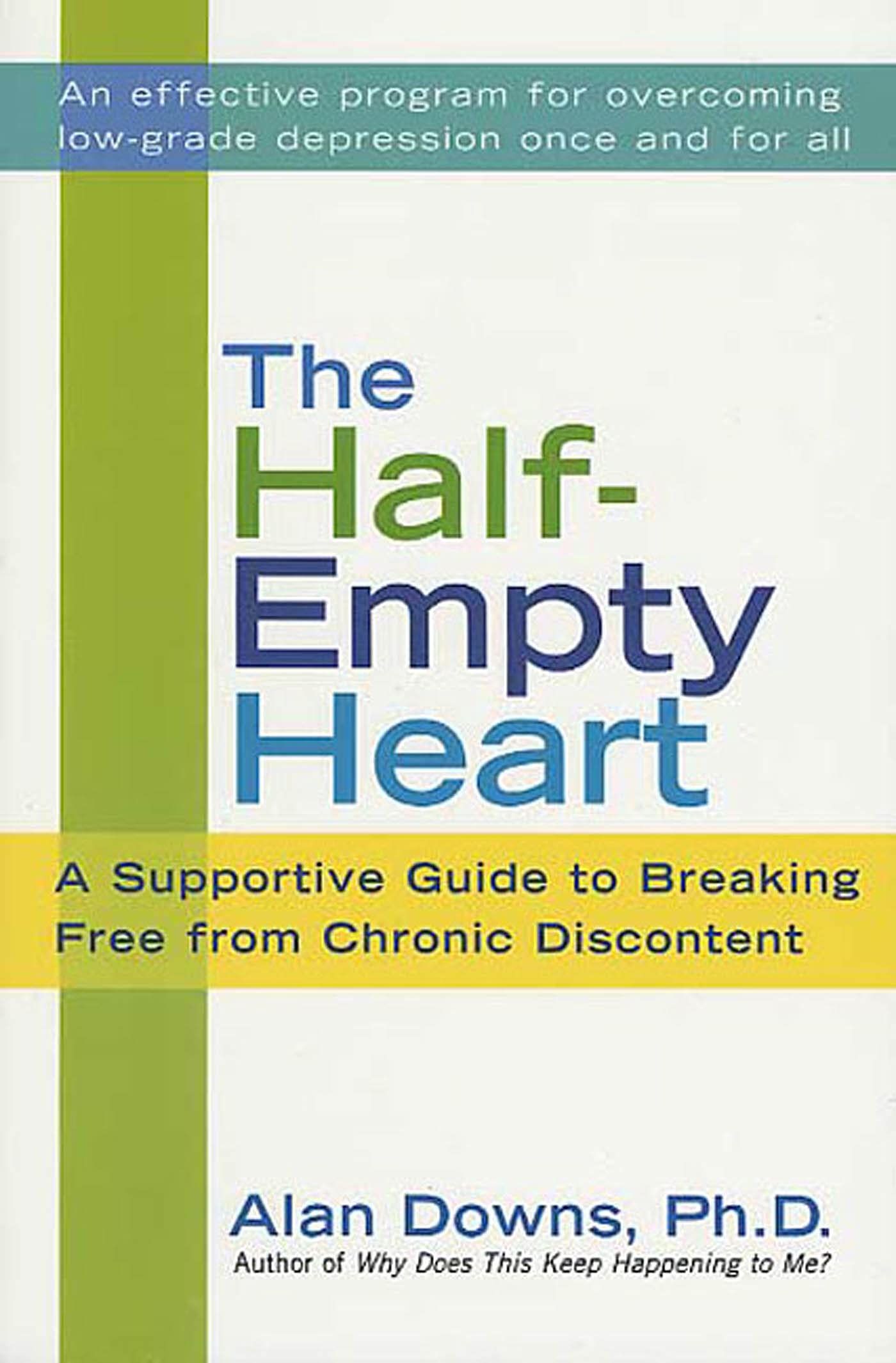


The Half-Empty Heart: A Supportive Guide to Breaking Free from Chronic Discontent
K**R
This is a MUST read for anyone dealing with dysthymia!
This is the best book on Dysthymia yet! I have suffered from low-grade chronic depression for 60 years, most of which I didn't know or understand that I had a mental disorder, only that I felt down and sad most of the time. Dr Downs has NAILED the dysthymic symptoms and behaviors. He truly understands what I have been dealing with and just as important, suggests ways to deal with my dysthymia. It is an easy read but with so much meaningful information, there is a lot to absorb. I am currently on my second reading and will likely read it again until I have internalized his advice.This is a must read for anyone who suffers from dysthymia!!
R**.
It will give them a better understanding people with CD
This book was very helpful to me. For anyone with this problem who can't afford thousands of dollars for therapy, it is well worth reading. I also think it would be helpful for friends and family of people with CD. It will give them a better understanding people with CD.
S**U
Four Stars
Brilliant book so far, will be trying the exercises in the back of the book ASAP.
D**E
Half-Empty to Full Heart Approach to Vital Living
What a life savor! The author, Alan Downs, certified Ph.D. psychologist and advocate of Gay Rights, leads the reader through a maze of motives and syndromes toward relief from guilt, shame, and other limiting dysfunctions. The most surprising aspect were various inventory measures that allow you to see yourself as a clinician might. But you are not left without hope! There is a masterfully written daily guide toward correcting what ails your heart, leading you after weeks of serious attention, to a more than half-empty heart. Taken seriously, this book can transform your life!
A**E
Good for people with emotional relationship withdrawel issues
I wanted to write a review to prepare others who, like me, suffer from dysthymia, but also suffer from other issues (traumatic backgrounds,other metal illnesses etc) that possibly mean that the solutions proposed in this book won't actually help their dysthymia. This is not a one-size-fits-all solution.For me, personally, a lot of the book rang true and gave some good insight, but ultimately my issues are a lot more complex and difficult to solve than what is the central premise of this book.(NB *SPOILER ALERT* in the following summary - Also, if you suffer from dysthymia please don't disregard the book on this central premise I set out below because you feel it doesn't apply to you - it might be more appropriate than you think now - and there are exercises in the book which can help you decide if this is the case.)In summary, the premise is that at some stage sufferers of dysthymia learned (more accurately were taught) to feel ashamed of their feelings, and to suppress and avoid intense genuine emotions. This in turn caused them to avoid facing difficult issues in their relationships as this would involve feeling - and facing - emotions they want to avoid such as love, anger, disappointment, hurt etc. This in turn led to them walking away from potentially close and meaningful relationships or withdrawing emotionally from relationships that were impractical to leave.The important thing for sufferers is to learn to face their feelings in relationships again; to re-learn that feelings are not shameful but are of the richest of human connection and experience. They bring closeness, meaning, and ultimately contentment.So the books focus is provide exercises to help you re-connect with your feelings and express your emotions within relationships, making them stronger and closer. And to stop walkng away from, or emotionally withdrawing from important relationships.The problem for me is,well, this is not my problem.I got this book since I suffer from dysthymia, but should have realised from the other problems I suffer from that I probably need something solutions a little more complex and wide-ranging than those causes and relate solutions proposed in this book. Unfortunately this means that the exercises in the book do not apply to me and won't help with my dysthymia.Still, it was an interesting book and I think the theory - that our relationships, and how we deal with them - are the source, and solution, for dysthymia.I will make one proper criticism of the book though. I do not think the author adequately dealt with abusive relationships. A lot of the exercises ask you to look at important relationships you miss or would want to continue but let go. I think there is a risk that some people doing the exercises may take the blame for the breakdown of relationships that could have been abusive,and that it was absolutely appropriate for them to walk away from (I believe self-blame is particularly common for children who feel a natural love for even abusive parents & they ay be particularly vulnerable to this). If you are reading this review and are tempted to do that when doing the exercises please don't - the author should have put a disclaimer that some relationships are rotten, and that some behaviour is never acceptable, and that walking away from those relationships is often the best thing you can do.
Trustpilot
5 days ago
1 month ago